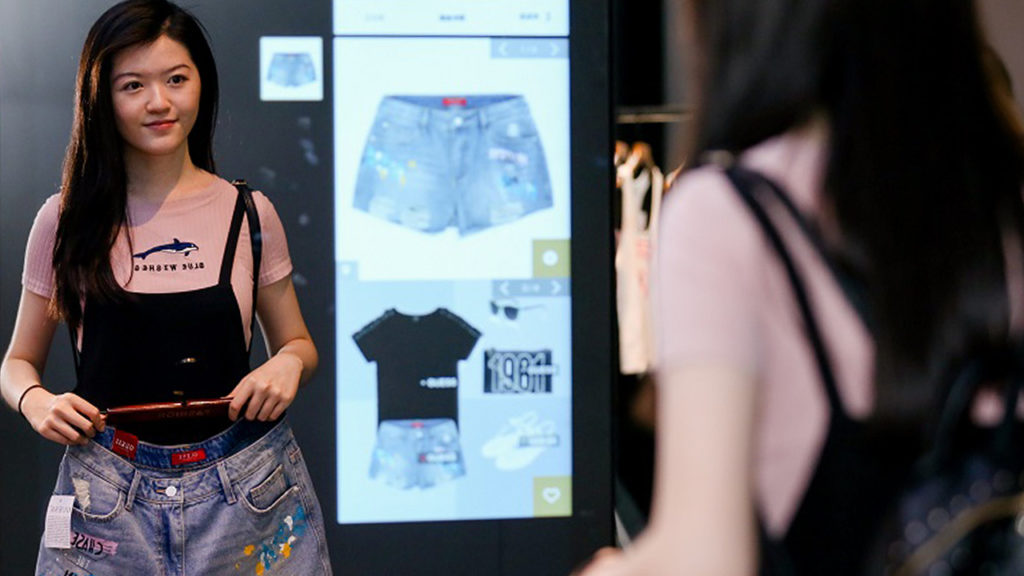Global lifestyle brand Guess announced a new project with longtime partner Alibaba Group to bring fashion and technology together using artificial intelligence. At the same time, customers are provided with richer experiences that “combine both online and offline shopping behaviors.”
On July 4, the two companies jointly launched a pilot concept shop on the Hong Kong Polytechnic University campus coinciding with the 2018 Fashion and Textile Conference, to envision the future of fashion retail. Driven by Alibaba’s FashionAI project, which combines computer vision with human fashion expertise, the FashionAI concept store features smart racks, smart mirrors and next-generation fitting rooms.
Shoppers logged into the store using a mobile app, with the option to have their faces scanned for a more personalized experience. They were then free to browse the store, and a nearby mirror would show related information whenever they took an item off the rack. Customers could use the touch interface to interact with the mirror to see different colors along with personalized mix-and-match options and accessories to complete the look, along with where they could find the items in the store.
Additionally, shoppers don’t have to lug around a pile of clothing. They can use the smart mirror to add items to their cart, and store employees will have their picks ready for them to try on when they go to the fitting rooms. There, they can interact with additional smart mirrors and the FashionAI to further adjust or customize their look, while the staff is alerted to changes in real-time. The clothes they try in the store will show up on their mobile apps, which will offer further mix-and-match options from Alibaba’s ecommerce sites, Taobao and Tmall.
In a related press release, Guess Inc. said, “Besides the FashionAI concept store’s futuristic appeal, the project was aimed at providing a better retail experience for shoppers and to help brands better use analytics in ordering and maintaining inventory.”
Although fully automated, unmanned stores already exist in China, they’re mainly convenience stores. Fashion is a completely different beast. An outfit that’s perfect for one person might not be to someone else’s taste, which is why this was a major test for the artificial intelligence. Other practical issues include whether the store can be scaled for better speed, since each smart mirror can only attend to one user at a time.
The concept store provides a glimpse into a future where online and offline shopping could come together, facilitated by artificial intelligence. It also marks a new step in a partnership that has lasted over five years, with Guess confirming that the Alipay app will be supported in 41 US stores by the end of the month. Guess has not provided a termination date for the pop-up experience, and even though the company hopes to open a second location in the future, there currently aren’t any plans for one.
“As technology changes how we interact, it also affects how we shop. As our customers evolve, it is critical that we evolve with them,” said Guess CEO Victor Herrero in a statement. “Our strong and long-lasting partnership with global technology leader Alibaba puts us ahead of the market in our industry. Together, we are able to innovate in real time. This is the future of retail and we plan to continuously invest and adapt to our customers’ needs in this changing retail landscape.”

